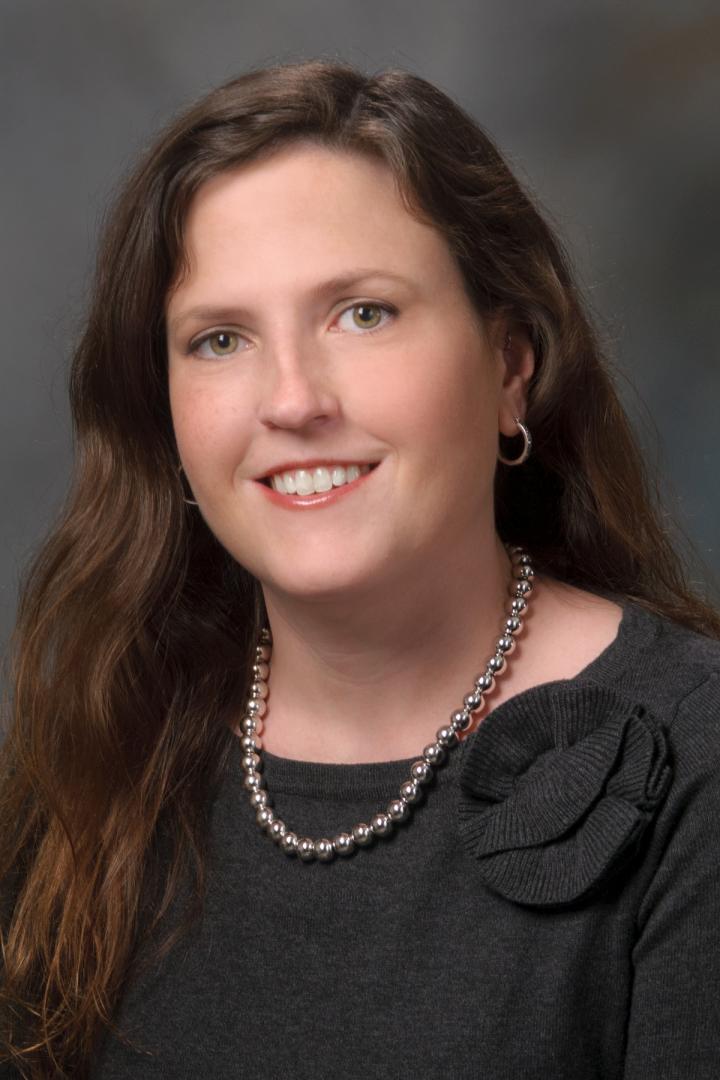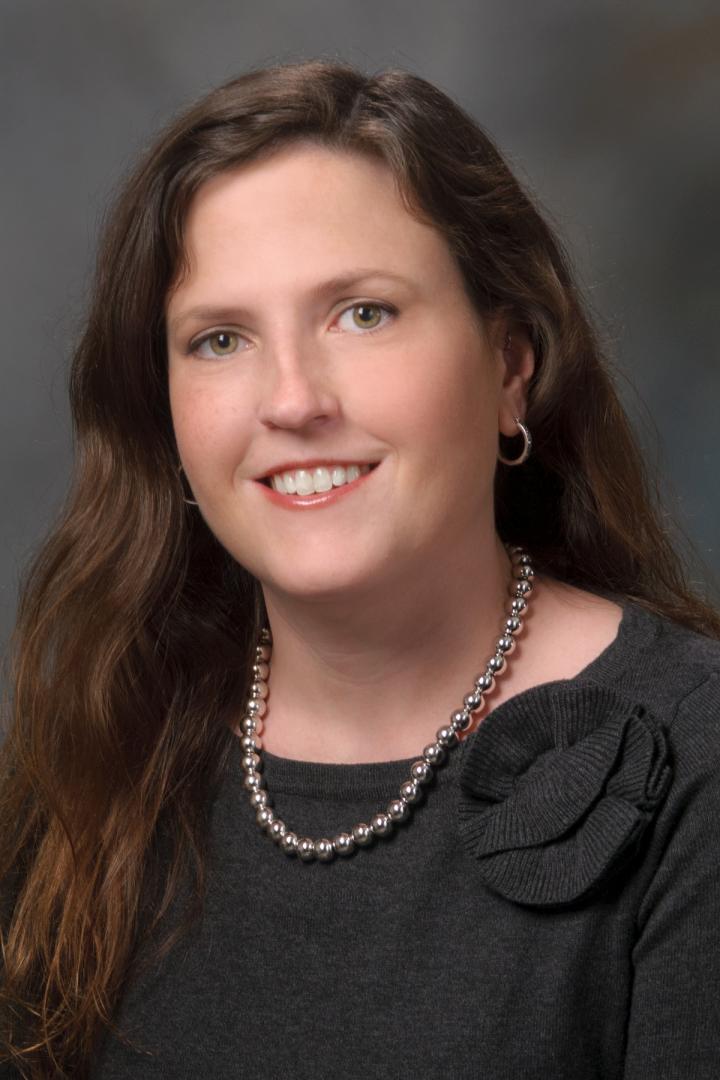
Credit: MD Anderson Cancer Center
Small cell lung cancer (SCLC) accounts for 14 percent of all lung cancers and is often rapidly resistant to chemotherapy resulting in poor clinical outcomes. Treatment has changed little for decades, but a study at The University of Texas MD Anderson Cancer Center offers a potential explanation for why the disease becomes chemoresistant, and a possible avenue to explore new diagnostic approaches.
Findings from the study were presented today, at the American Association for Cancer Research Annual Meeting 2018 in Chicago by Allison Stewart, Ph.D., Research Scientist in Thoracic Head & Neck Medical Oncology.
"There have been few therapeutic advances in the past 30 years and platinum-based chemotherapy remains the standard of care. As a result, five-year survival is less than 7 percent across all stages," said Lauren Byers, M.D., associate professor of Thoracic Head & Neck Medical Oncology, and the study's principle investigator. "Most patients respond well to platinum chemotherapy initially, but relapse within a few months. There are no highly effective second-line therapies."
The challenge in studying why and how SCLC chemoresistance occurs is due to the fact that most patients do not undergo another biopsy or surgery at the time of cancer recurrence. This leaves investigators like Byers and Stewart with few SCLC samples with which to conduct genomic and biomarker analyses of drug-resistant tumors.
To overcome the lack of SCLC samples, the team developed novel disease models by isolating circulating tumor cells from a simple blood draw. The cells, placed under the mouse's skin, develop tumors representative of the patient from whom they were derived. These SCLC models, called circulating tumor cell-derived xenografts (CDX), are unique to each patient and provide an opportunity to assess treatment response to novel targeted therapies, as well as changes that may occur in response to therapy.
"We hypothesize that differences in gene and protein expression between tumor cells, called intratumoral heterogeneity, contribute to the rapid development of platinum chemotherapy resistance," said Stewart. "This means that there are likely multiple cell populations in SCLC patients who have not yet been treated. Some of those cells may be killed by chemotherapy but others will not. These resistant cells then continue to grow and prevent further response to treatment."
To study intratumoral heterogeneity (ITH) in SCLC, the investigators performed single-cell sequencing of CDX models to identify gene expression differences between individual cells from chemotherapy-sensitive CDX tumors compared to those that remain resistant.
"We conducted single-cell RNA sequencing to determine if ITH exists and to compare response to chemotherapy in the CDX and the patient," said Stewart. "We found several distinctions between sensitive and resistant models detected at the single-cell level, which testified to single cell sequencing's potential usefulness for understanding how these cancers may develop resistance."
SCLC has a variety of differences at the cellular and genetic level, from the way genes are expressed to which cell-signaling pathways are involved. These differences between tumor cells result in ITH. A more thorough understanding of ITH is important to identify populations of cells that may drive certain pathways associated with aggressive resistance to chemotherapy.
The team also found that SCLC models sensitive to chemotherapy had more cells that expressed two genes, ASCL1 and DLL3, while those that were chemoresistant had fewer cells expressing those genes or had undergone a process called epithelial-to-mesenchymal transition (EMT), which also has been shown to play a role in therapy resistance in other cancers.
"Cells expressing each of these characteristics were identified across all tumors, suggesting cells sensitive or resistant to chemotherapy are both present in the same tumor," said Stewart. "However, even subtle shifts in the distribution of these genes can exert significant impact on response to treatment."
Stewart adds that the team's data support further use of single-cell analysis to explore the role of ITH in SCLC, including effects of treatment on cell populations.
"Through use of these new mouse models, we report data that supports use of single-cell analysis to explore the role of ITH as a driver of drug resistance," said Stewart.
###
MD Anderson study team participants included Carl Gay, M.D., Ph.D., Patrice Lawson, Mayra Vasquez, Hai Tran, Bonnie Glisson, M.D.; Jianjun Zhang, M.D., Ph.D.; and John Heymach, M.D., Ph.D., all of Thoracic Head & Neck Medical Oncology; Yuanxin Xi, Ph.D., Pan Tong, Ph.D., Lixia Diao, Ph.D., Lerong Li, and Jing Wang, Ph.D., of Bioinformatics & Computational Biology; Junya Fujimoto, M.D., Ph.D., and Ignacio Wistuba, M.D., of Translational Molecular Pathology; Neda Kalhor, M.D., of Pathology; and Stephen Swisher, M.D., and Jack Roth, M.D., of Thoracic and Cardiovascular Surgery. Also participating were members from The Jackson Laboratory for Genomic Medicine, Farmington, Conn.
The study was funded by the National Institutes of Health (1-R01-CA207295, P30 CA 01667 and 5P50 CA 070907); Hope Foundation; Rexanna's Foundation for Fighting Lung Cancer; and Moon Shots Program™.
Media Contact
Ron Gilmore
[email protected]
713-745-1898
@mdandersonnews
http://www.mdanderson.org





